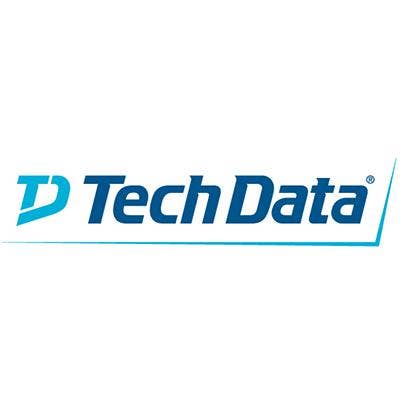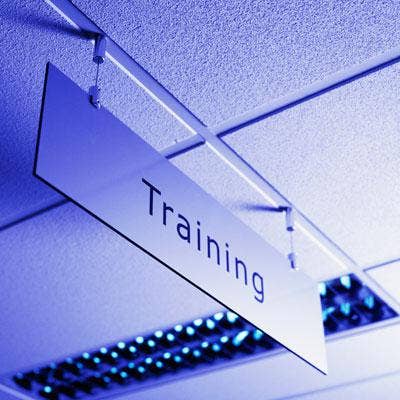Q&A: Rich Hume On The Integration Challenges And Opportunities Of Tech Data's Avnet Buy

The Importance Of Integration
Rich Hume, executive vice president and COO of Tech Data, said the distributor has already rolled out a joint organizational and sales coverage model following its acquisition of Avnet Technology Solutions.
Hume spoke with CRN about dealing with integration challenges, plans and programs established to drive cross-sell activity, and the evolving relationship between endpoint devices and the data center.

What has been accomplished from an integration perspective since the Avnet TS deal closed in February?
From an integration perspective, we've done some very, very comprehensive planning. And things have gone extremely well relative to bringing the two organizations together. The organizational footprint is in place. We've selected our leadership team in all areas of the organization. Then the second piece is the sales coverage model is deployed, so our sales resources and our customers know who is covering them. From an ERP perspective, we have had no hiccups. We're able to service our customers with no disruption. When you take a look at the first six months of integration and our very detailed, weekly sort of timeline chart, there are no gaps relative to the plans that we've put in place.

What are the principles guiding the North American integration of the organizations?
The TS strength was absolutely in the data center and in the emerging technologies. In North America, the Tech Data strength was in the endpoint or client piece, and we had a pretty good chunk of data center distribution as well, just not with as comprehensive of a line card. A simplistic view would be we rolled our data center business into the TS structure. The prevailing governance around the business would be more toward the TS practices for data center, and more toward the TD practices within the client or endpoint solutions.

Why was it important for Tech Data to have broadline and specialty distribution under one roof?
We know that the returns within value distribution are better, so it's a move more toward higher value from a business model perspective. In order to participate in the growth segments of the market, we have to expand our core skill set and capabilities, and that's what made the TS piece very attractive to us. And segments of the technology were beginning to converge. Mobility and the mobile phone has become a big piece of the industry. At first, it emerged as a consumer device, but now we know that device is used in the enterprise all of the time. So when we took a look at where the market was going, not only was it the next-gen technologies, but the influence that consumer was having on commerce. Having an end-to-end value proposition as a distributor would be critical for the future.

What are the key differences between data center and endpoint device distribution?
In any business where there is a bigger investment in capability and content, it usually aligns with a larger return. So when you take a look at volume distribution and value distribution, there is a differentiation relative to the return, but there is more investment required as well. The value segment of the market has better financial attributes than the volume segment of the market. Serving emerging technologies within the market requires a greater bench of technical skill and capability. By adding more value capability, it's an enhancement to our overall financial model.

How is the relationship between devices and the data center evolving?
Resellers and their customer needs are being driven by providing solutions rather than point products. And when they provide these solutions, they very often include endpoint devices as well as data center capabilities. We see the ties between the endpoint devices and the data center things becoming more synergistic as we move through. One of the compelling elements of pulling the two companies together is that we would have a unique position of being able to serve these end-to-end solution needs.

How suited are Tech Data's legacy partners to play in the value space?
A lot of the compute that occurs, which historically had occurred perhaps in the data center, will now move out into the endpoint devices. It's just based on the technology and the capabilities which exist. Our volume resellers are very well-suited to follow the evolution of the endpoint device, where these edge devices will provide compute capability on the edge, and not in the data center. We believe that our client device resellers will become endpoint resellers, and by definition, their value to their end users will go up because more of the compute is moving out onto the endpoint device.

How will these technology shifts affect value resellers?
When you have the value players and you take a look at what they've got going on, first, internal to the data center alone, there's a big shift toward hyper-converged, flash and software-defined. In their core, they're transforming their skill sets to be able to serve that. And then, in addition to that, they are chasing the high-growth areas of cloud, analytics and security. When they provide solutions as those value resellers, they'll have to grow their skill sets in both of those dimensions.

What are some of the bigger challenges you've encountered during the integration process?
For example, Tech Data, for their exempt employees, has had a fairly traditional view for our vacation policy. Meaning, if you're here for five years, you earn X weeks, if you're here for 10 years, you earn X-plus. And TS had adopted more of a progressive policy which is more along the lines of flexibility and take what you need. And so, when we took a look at our company and moving forward, we adopted the more progressive policy. We have the functional leaders that work to vet that out, and in the instance that a decision needs to be made, we bring it forward to an integration management office to clarify and decide.

What types of conflicts arise between the ongoing business and the integration plan?
The type of things that actually emerge are around our IT deployment country by country by country, primarily in Europe. It's a real critical dialogue because you have to make sure that first, you have all of the pre-work and testing done. And second and most importantly, that you're working within the capacity of the organization. The line side has a very aggressive view of the deployment because they want to get it done and behind them. The IT side has a more proscriptive, make-sure-it-doesn't-break approach. It's a matter of finding the balance between absolutely prioritizing that it doesn't break, but yet having an aggressively balanced schedule of deployment.

What cross-selling opportunities exist around the Avnet TS acquisition?
In the past, if you were an Avnet TS customer and you had needs perhaps that went into the volume space that were outside the scope of the TS line card, now we can provide that service to their customers. Conversely, if we had our [legacy Tech Data] reseller customers who needed some data center capabilities which didn't appear on our line card, we can now make those offerings available to those customers. It will be a matter of providing a greater portfolio or greater scope of offerings to each of those customer sets.

Where do things stand from a training and technical standpoint in terms of facilitating cross-sell?
Depending on the content they're buying, they at this point might have to interface two SAP systems. But since they're familiar with one, it really isn't an inhibitor to speak of. They're two different instances which ultimately will converge, but we haven't had our customers tell us that this is a big issue. It is a matter of each of the sales resources becoming familiar with the new line card capability, and then providing those capabilities to their customers. We absolutely have already seen the benefit of an expansion of purchase by resellers taking advantage of the greater line card.

What plans and programs have you put in place to drive cross-sell activity?
There's two sales leaders in the Americas, one which serves the endpoint products and then some of the other volume products, and then the other who serves the data center and advanced solution products. So it's Jeff Bawol on the advanced solutions, and then Marty Bauerlein. They come together, and they have clarity customer by customer relative to who's in front and who's responsible for the primary coverage, and then they have plans that talk about the added line card opportunities within each one of those resellers. And then we're tailoring the education to align with the opportunity up front. Very pinpointed, and we'll broaden it as we move through time.

What's the easiest entry point for Tech Data resellers into the TS line card, and vice versa?
It really is a vendor expansion opportunity as opposed to a particular product. You might have a legacy TS customer who buys in the data center. The traditional value distributors in the U.S. market are pretty close to inventory-less models. That being said, our vendors service more than just the inventory-less piece. Now, within a given vendor line, the reseller can have one relationship and get all of their needs met. And then, similarly, when you take a look at the volume guys, our expanded line card within the data center allows them now to sell entry and midrange things of vendors that they didn't have access to before.